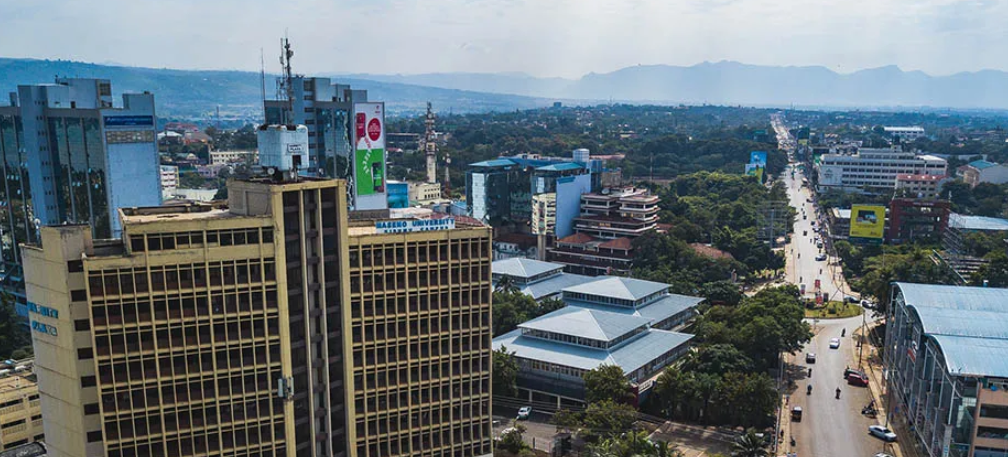The National President of the Kenya Institute of Planners (KIP) Joakim Nyarangi has urged the National and County Governments to prioritize urban planning to curb encroachment of riparian land and mushrooming of informal settlements in major towns.
Wetlands remain unprotected areas making these ecosystems vulnerable to encroachers who grab the spaces for economic development and conversion to other land uses.
Nyarangi says urban planning provides a development framework for cities, municipalities, and towns to be implemented over a certain period, earmarking public spaces for specific development plans, thus, weeding out potential land grabbers.
He was addressing KIP members and various stakeholders drawn from the Western Kenya region during the World Town Planning Day celebrations in Kisumu County.
The day that is marked annually on 8 November, is meant to recognize and promote the role of planners and planning in creating safe, healthy, resilient and sustainable urban areas.
Nyarangi, a licensed Planner and GIS Specialist, stated that improper planning or lack of it has precipitated the encroaching of the country’s water towers, public spaces, forests and wildlife reserves.
“We have seen investors advertising the sale of plots in the Aberdare forest which is a water tower. It is very important that we protect against this kind of encroachment through planning,” he stated.
He observed that the prolonged droughts witnessed in the region are subject to human actions of clearing and burning of bushes along the riparian lands.
“Planning ensures that land is properly demarcated, delineated and is titled as a public utility by the National Lands Commission (NLC) blocking the piece of land from allocation to private investors,” Nyarangi said.
In 2017, the NLC repossessed 2,000 acres in Karura Forest Nairobi that had been grabbed by influential members of the public.
Additionally, a report by the Ministry of Lands, 2022 shows that over 50 per cent of infrastructure development around Lake Naivasha is on riparian land.
In Kisumu, in the past decade alone, Lake Victoria has lost over half of its wetlands to private individuals and organizations who have established multimillion infrastructural investments causing disruption to the lakes’ ecosystem.
KIP expressed commitment to partner with like-minded institutions like the Kisumu Lakefront Development Corporation to catalyze the development and manage economic and social activities of the lakefront.
“The lakefront is an attractive space for business and commercial development as well as recreational activities. There is a need for collaboration to enhance ecosystem management and biodiversity protection. As we plan for the people, we also plan for sustainability of the important ecosystem spaces which are beneficial to our livelihoods and welfare,” stated the Association president.
To tackle the challenge of informal settlements in Kenya’s major towns, Mr Nyarangi proposed an integrated approach to sustainable urban development spearheaded by different players in the economy.
Planning, revealed Nyarangi, plays a pivotal role in the socio-economic development and the eradication of slums and informal settlements.
He assured that KIP has proposed to governments to prioritize the planning and development of the 1500 market centres across the country to reduce the migration of people to the capital and the other big towns.
“The issue of mushrooming of slums is a socio-economic issue. People come to towns in search of better livelihoods, but there are no provisions for social amenities. Through planning, we’re able to know the housing demand to help the government in establishing dignified and affordable housing for the low-income population,” he said.
Regional disparities in economic development and the inception of devolved units have influenced the growth of slums outside Nairobi and Mombasa.
“It’s important that County Governments institute drastic measures to revitalize the rural areas by availing subsidized production incentives to attract investors,” Mr Nyarangi proposed, adding that this would reduce the concentration of people in urban areas.
By Robert Ojwang’




